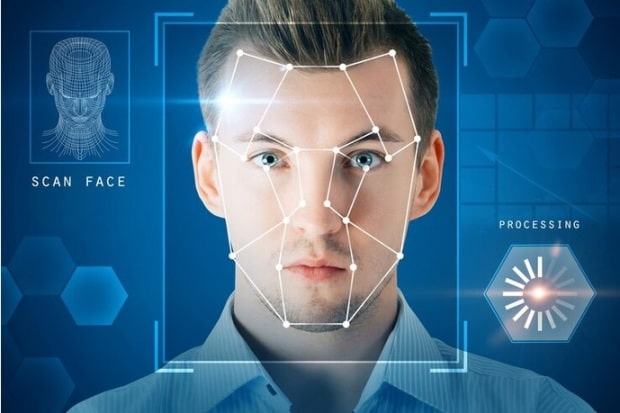Navigating the Ethical Landscape of Facial Recognition Technology in Business

Introduction
In the ever-evolving landscape of technology, facial recognition stands out as a powerful tool with both promising capabilities and profound ethical implications, particularly within the realm of business. This article explores the multifaceted ethical considerations surrounding the integration of facial recognition technology in various business contexts.
Privacy Concerns: Balancing Security and Individual Rights
One of the primary ethical concerns surrounding facial recognition technology in business revolves around privacy infringement. The collection and analysis of facial data raise questions about individuals’ rights to control their personal information. Unlike other forms of biometric data, such as fingerprints or iris scans, faces are public by nature—they can be captured without consent in public spaces or through surveillance cameras. Consequently, individuals may feel vulnerable knowing that their faces can be tracked, analyzed, and potentially stored in databases without their explicit permission.
Moreover, the potential for misuse or unauthorized access to facial data raises significant privacy risks. Data breaches or hacks targeting facial recognition systems could expose sensitive information, leading to identity theft or unauthorized surveillance. Additionally, there is a risk of function creep, wherein data collected for one purpose is repurposed for another without individuals’ consent.
Addressing Bias and Discrimination
Another ethical consideration is the potential for bias and discrimination inherent in facial recognition algorithms. These systems rely on vast datasets to train their models, and if these datasets are not diverse or inclusive, they may perpetuate biases present in society. For instance, studies have shown that facial recognition algorithms exhibit higher error rates when identifying individuals with darker skin tones or non-binary genders, reflecting underlying biases in the data used for training. In a business context, such biases could lead to discriminatory outcomes in hiring, customer service, or security screening processes, exacerbating existing inequalities.
Furthermore, the lack of transparency and accountability surrounding facial recognition algorithms exacerbates concerns about bias and fairness. Many companies guard their algorithms as proprietary secrets, making it difficult for independent researchers or regulatory bodies to assess their accuracy, fairness, or potential harms.
Consent and Autonomy: Ensuring Informed Participation
The ethical implications of facial recognition technology also extend to issues of consent and autonomy. Individuals may not be aware of when or how their facial data is being collected, analyzed, or used, depriving them of the opportunity to provide informed consent. In some cases, consent mechanisms may be opaque or coercive, leading individuals to unwittingly surrender their privacy rights in exchange for access to goods or services. Moreover, the pervasive presence of facial recognition technology in public spaces could erode individuals’ sense of autonomy and anonymity, creating a chilling effect on their behavior and freedom of expression.
Towards Ethical Implementation: Transparency, Accountability, and Engagement
Addressing the ethical challenges associated with facial recognition technology in business requires a multifaceted approach that balances innovation with accountability, privacy, and fairness. Firstly, there is a need for robust regulatory frameworks that govern the collection, storage, and use of facial data, ensuring transparency, accountability, and consent. Such regulations should encompass both the public and private sectors, imposing obligations on businesses to conduct privacy impact assessments, implement data protection measures, and obtain explicit consent for facial recognition activities.
Moreover, companies must prioritize ethical considerations throughout the development, deployment, and use of facial recognition technology. This includes conducting thorough assessments of the potential risks and harms associated with its implementation, as well as actively working to mitigate biases, improve accuracy, and safeguard individuals’ privacy rights. Transparency should be a guiding principle, with companies providing clear and accessible information about their facial recognition practices, including the purposes for which data is collected, the algorithms used, and the measures taken to protect against misuse or abuse.
Additionally, promoting diversity and inclusivity in facial recognition datasets is essential to addressing bias and ensuring fairness in algorithmic outcomes. Companies should strive to gather representative data from diverse populations and regularly audit their algorithms for fairness and accuracy. Collaborating with external stakeholders, including civil society organizations, advocacy groups, and affected communities, can help companies gain insights into the potential impacts of their facial recognition initiatives and identify opportunities for improvement.
Finally, fostering public dialogue and engagement on the ethical implications of facial recognition technology is critical to building trust and accountability. This includes providing avenues for individuals to voice their concerns, express preferences regarding the use of facial recognition, and participate in decision-making processes that affect their privacy and autonomy. By soliciting feedback, responding to grievances, and incorporating diverse perspectives into their policies and practices, businesses can demonstrate a commitment to ethical leadership and responsible innovation.
Conclusion
In conclusion, while facial recognition technology holds immense potential to revolutionize business operations, its widespread adoption raises complex ethical challenges that cannot be ignored. From privacy infringement and bias to consent and autonomy, the ethical implications of facial recognition demand careful consideration and proactive action from businesses, regulators, and society at large. By upholding principles of transparency, fairness, and respect for individual rights, stakeholders can harness the benefits of facial recognition technology while mitigating its potential harms, ensuring that innovation serves the common good.
